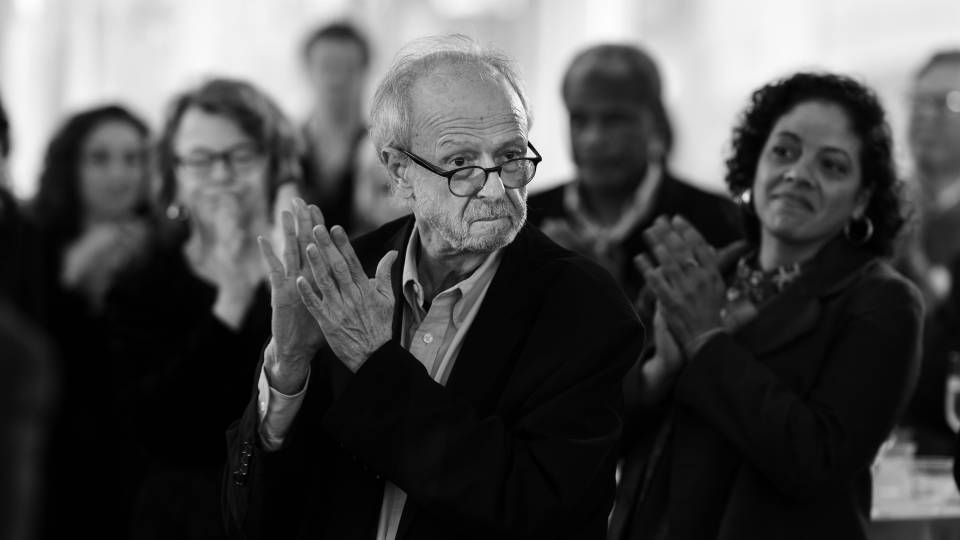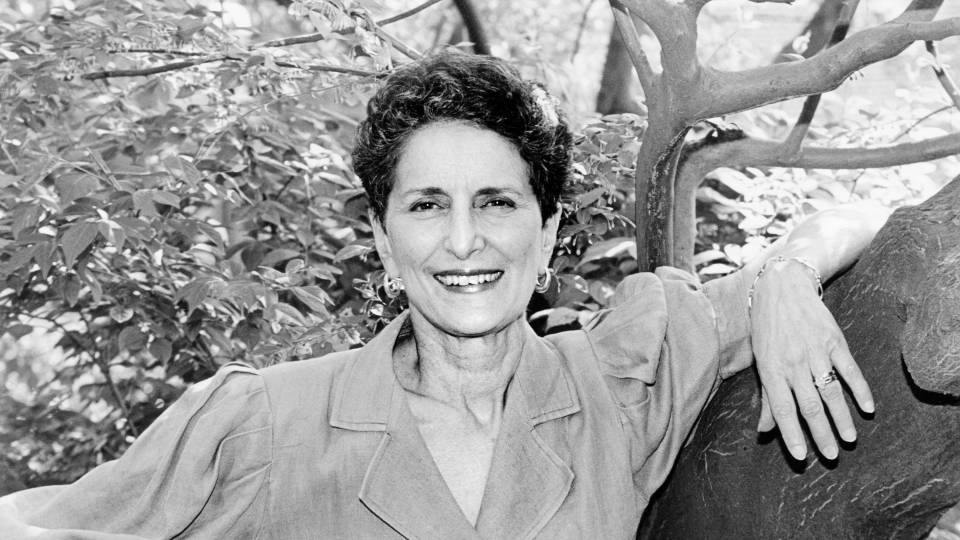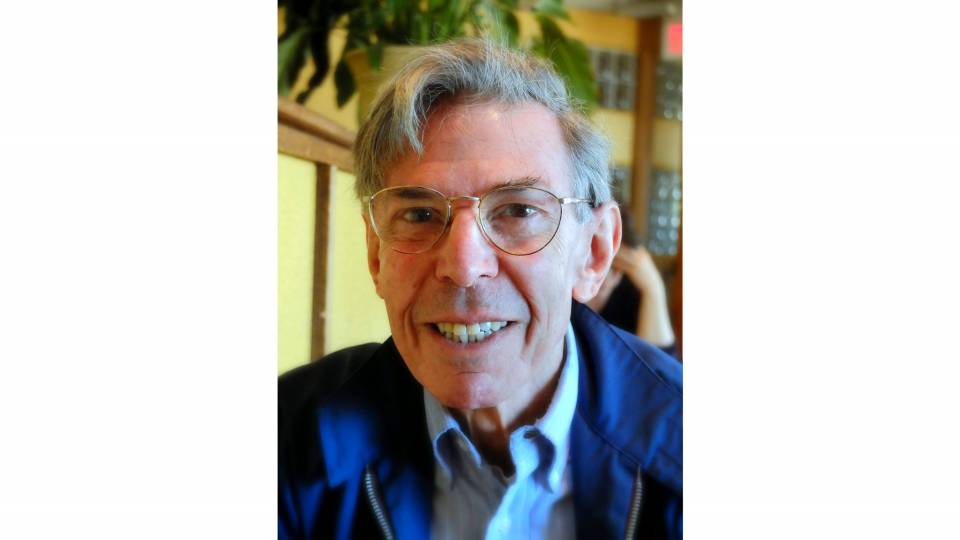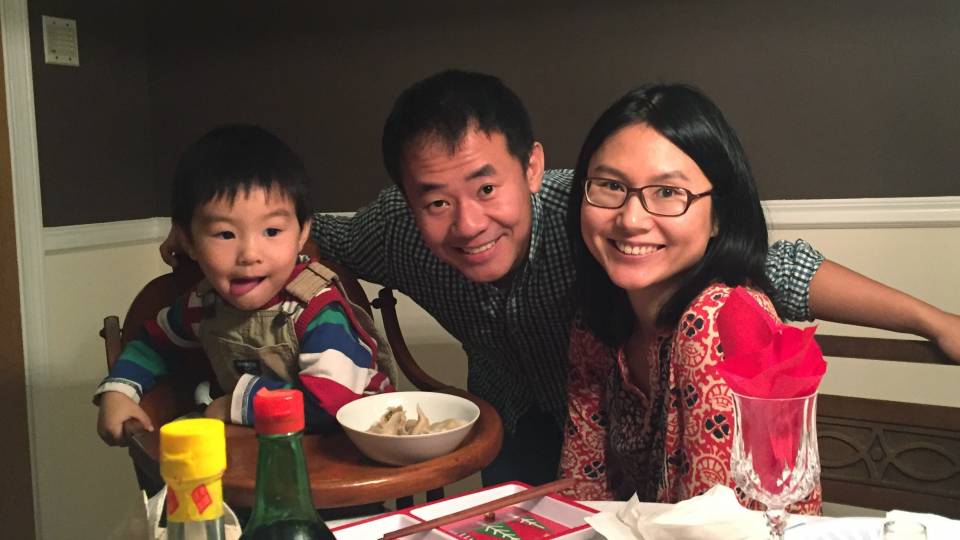Arno J. Mayer, the Dayton-Stockton Professor of History, Emeritus, and an eminent historian of modern Europe and the politics and diplomacy of peacemaking, died while in hospice care at a memory-care facility in Princeton, N.J., on Dec. 18, 2023. He lived independently in an apartment in Princeton until just a few months before his death. He was 97.

Arno Mayer
Mayer taught at Princeton for more than three decades, joining the Princeton faculty in 1961 and transferring to emeritus status in 1993.
“His most important work of scholarship, ‘The Persistence of the Old Regime: Europe to the Great War’ (1981), accounted for World War I by looking beyond the failures of diplomacy to broader political struggles in Europe,” said Angela Creager, the Thomas M. Siebel Professor in the History of Science, professor of history and department chair. “His interpretations of history were often iconoclastic, but he was personally interested in people, especially junior colleagues, irrespective of whether they agreed with him.”
Creager said that one of his most lasting contributions to the history department was establishing in the mid 1960s, with Lawrence Stone, the Dodge Professor of History, Emeritus, a methods seminar for entering graduate students — which is still taught every fall.
Philip Nord, the Rosengarten Professor of Modern and Contemporary History, Emeritus, a close colleague and lifelong friend, also noted Mayer’s attentiveness to newer members of the department, counting himself among them.
“Arno was a charismatic teacher and colleague, by turns charming and irreverent,” Nord said. “He took a special interest in what junior faculty were working on and was always at the ready to read our work and provide a comment that was frank but also constructive. I remember working with him on graduate admissions. What he looked for in a dossier was not a well-stuffed CV but signs of a spark. Pedigree did not matter so much as evidence of a critical intellect at work.”
Mayer was born in Luxembourg in 1926 to Dr. Frank and Ida Mayer. As a teenager, he fled with his family in the middle of the night on May 10, 1940, only an hour ahead of the Nazis. His paternal grandparents accompanied them the the U.S. as refugees. His maternal grandparents were deported to the Theresienstadt concentration camp, where his grandfather perished. In 1971, his father was appointed by Israel’s foreign minister Abba Eban as Israel’s first Consul General to the Grand Duchy of Luxembourg.
Mayer received his bachelor’s in business administration from City College, New York, in 1949. He suspended his studies for two years of service in the U.S. Army, serving as one of the “Ritchie Boys,” the storied U.S. intelligence unit based at Camp Ritchie in Maryland. Like him, many were Jewish refugees born in Europe who had immigrated to the U.S. Mayer’s fluency in French and German helped the Allied cause.
The Ritchie boys were trained in espionage and combat intelligence, among other specialized skills, according to a Department of Defense history of the unit, and many took part in the D-Day landing. A “60 Minutes” segment reported that the Ritchie Boys uncovered 60 percent of the “actionable intelligence” from battles on the Western Front.
After training at Camp Ritchie, Mayer served in Operation Paperclip at Camp Hunt, Virginia, which held and interrogated German scientists including Wernher Von Braun. The 2021 Netflix documentary “Camp Confidential: America’s Secret Nazis,” in which Mayer is featured, estimates that he and his fellow intelligence officers saved tens of thousands of lives by uncovering the location of the Nazis’ secret rocket and research facility, Peenemünde, on an island off Germany.
Driven by his wartime experience to focus his scholarship more deeply on the history of diplomacy, Mayer went on to receive his Ph.D. in international relations from Yale University in 1953. He taught briefly at Wesleyan, Brandeis and Harvard before joining Princeton.
Mayer’s teaching and research at Princeton centered on the comparative history of Europe since 1848, with special emphasis on the interpenetration of domestic and international affairs. He was a member of the University’s Council on Human Relations, established in 1961 as a center for the study of problems of scholarly and public concern in human relations.
In May 2022, representing the surviving Ritchie Boys, he received the Elie Wiesel Award at the U.S. Holocaust Memorial Museum in Washington, D.C., the museum’s highest honor. Gen. Mark Milley, the former chair of the Joint Chiefs of Staff and a 1980 Princeton graduate, gave remarks and shared a remembrance of taking Mayer’s European history class as an undergraduate. (Victor Brombert, the Henry Putnam University Professor of Romance Languages and Literatures and Comparative Literature, Emeritus, who recently turned 100, is a fellow Ritchie Boy.) At the dinner, Milley asked the audience not to stand for him but to stand for the honorees, calling them “the real heroes.”
In addition to “The Persistence of the Old Regime,” Mayer is the author of “Political Origins of the New Diplomacy, 1917-18” (1959) and “Politics and Diplomacy of Peacemaking: Containment and Counterrevolution at Versailles, 1918-19” (1967), both of which won prizes from the American Historical Association, and “Dynamics of Counterrevolution in Europe, 1870-1956: An Analytic Framework” (1971). His books have been translated into more than a dozen languages.
Mayer’s later scholarship centered on three areas: the historical problem of the middle class, the dynamics of counter-revolution, and the persistence of Europe’s pre-French revolutionary institutions and traditions into the 19th and 20th centuries.
But he could not turn away from transforming and defining events of his own life: Nazism and the Holocaust. He sought to place even the most unthinkable in a wide, comparative historical context. His major work, “Why Did the Heavens Not Darken? The ‘Final Solution’ in History” (1988), is not only a synthesis of research on the Holocaust but "a major effort to make the violent course of the first half of our century ... more comprehensible and to give us a few yardsticks for identifying future dangers," wrote V. R. Berghahn, then a professor of history at Brown University, in The New York Times Book Review, which named it a Notable Book of the Year.
After retiring, Mayer turned his attention to a close comparison of two transnational revolutions in “The Furies: Violence and Terror in the French and Russian Revolutions” (2000, Princeton University Press), a co-winner of the 2001 Award for Scholarly Distinction from the American Historical Association. He also published “Plowshares into Swords: From Zionism to Israel” (2008). At the time of his death, he left behind a 938-page unpublished memoir, which he had worked on until the age of 94.
A fellow of the American Academy of Arts and Sciences, Mayer also was a member of PEN, the international writers' association, and the American Political Science Association. He held fellowships from the American Council of Learned Societies, the Rockefeller Foundation, the Guggenheim Foundation and the Institute for Advanced Study.
Among the classes he taught at Princeton on Europe in the 19th and 20th centuries were the undergraduate courses “Europe in the 20th Century” and “European Diplomacy Since 1815” and a graduate seminar titled “Europe Since 1871.”
One of Mayer’s dissertation advisees, Anthony Cardoza, professor of history, emeritus, at Loyola University Chicago, said Mayer’s mentorship extended throughout his career.
“Arno Mayer transformed my life, enormously expanding my intellectual world and what I could accomplish in the realm of scholarship and teaching,” said Cardoza, who earned his Ph.D. in 1975.
“Arno’s work on the enduring importance of old elites in shaping the course of the 20th century inspired my decision to focus on the less studied case of Italian Fascism in my dissertation,” Cardoza said. “His steadfast support and willingness to take my ideas seriously as well as his gentle prodding and sense of humor combined to give me the confidence that I could accomplish my goals.”
He also remembers Mayer’s gracious invitation “into his world of internationally renowned historians (often visitors at the Institute for Advanced Study) and celebrated public intellectuals like Susan Sontag and the French filmmaker Marcel Ophuls. I have the fondest memories of dinner parties at Arno’s home, characterized by lively conversations on the hot-button issues of the day.”
Mayer’s son Carl, a 1981 Princeton graduate, said they lived near the Institute for Advanced Study (IAS), where his father was regularly invited by Robert Oppenheimer, then director of IAS, to his weekly dinners “because he admired my father’s historical theories and commitment to world peace.” He also remembers his father taking him and his brother Daniel to Princeton football games, even though his father didn’t understand anything about the game — and insisting they sit on the sunny side of the stadium so he could read books, European style, even though it was the visitors’ side, which mortified his sons. “Every once in a while, he would look up from his book, usually Hegel or Nietzsche, in German, and ask, ‘Boys, did anyone hit a home run?’ He told that joke for years.”
In addition to his sons, Mayer is survived by his sister, Ruth, and five grandchildren: Nathanael, Shane, Samuel, Ruby and Lillian Mayer.
Donations in Mayer’s honor may be made to Magen David Adom and the Red Crescent.
A public memorial service will be held at 3 p.m. on Sunday, Jan. 12, 2025, at Princeton University Chapel, with a reception immediately after at Prospect House.
View or share comments on a memorial page intended to honor Mayer’s life and legacy.



